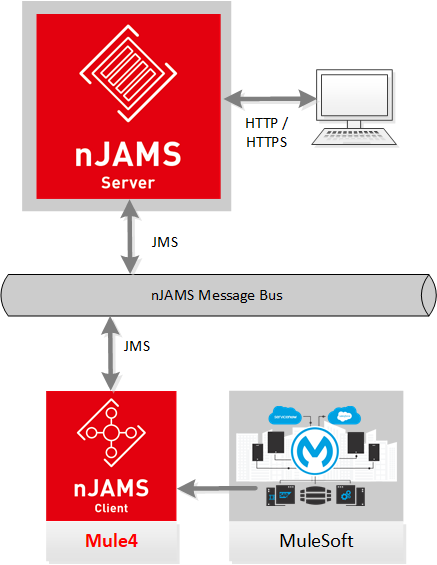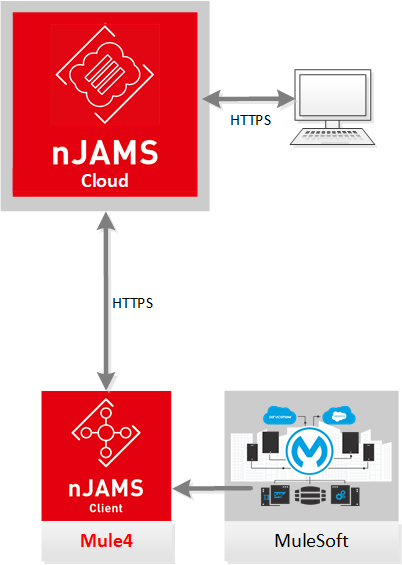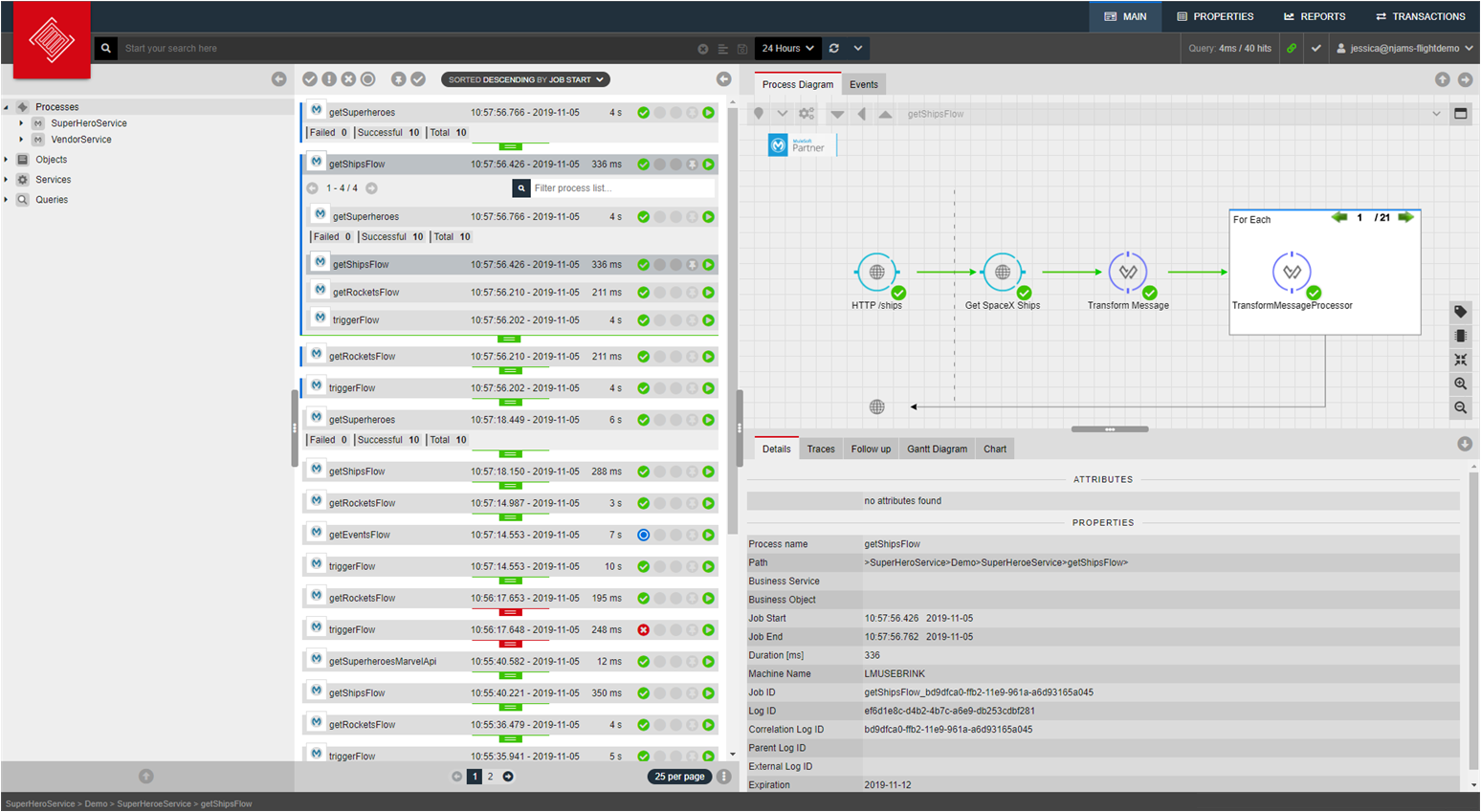Introduction#
nJAMS Client for Mule4 extends the nJAMS family with a client software that enables monitoring of MuleSoft Runtime Engine flow executions.
What is nJAMS?#
nJAMS is not just another monitoring solution. nJAMS is more! With nJAMS you are unveiling the hidden secrets of flow executions inside the Mule Runtime Engine.
Core part of nJAMS is the nJAMS instance. The nJAMS instance collects log events from a wide range of nJAMS Clients and attractively visualizes also very large amounts of monitoring data. The nJAMS instance can be used as a service (nJAMS Cloud), or can be used on-premise (nJAMS Server).
The counterpart to nJAMS instance is nJAMS Client, which is the magic component that connects to the integration layer that should be monitored. In particular, nJAMS Client for Mule4 connects to Mule Runtime Engine and monitors each single flow execution. In a unique way nJAMS Client for Mule4 provides the flow diagram as desinged in Anypoint Studio and unveils the execution path of the flow.
Who is nJAMS for?#
Technical operation teams, development, QA teams commonly use nJAMS. Anyone who wants to gain process insight from integration platforms will want to use nJAMS.
How secure is my data?#
nJAMS is designed from the ground up to keep your monitoring data secure. The transport layer between nJAMS Client for Mule4 and the nJAMS Cloud instance is encrypted as well as the persistences layer within the nJAMS Cloud instance. Of course, also the presentation layer uses secure communication over https. Authentication and authorization by role-based access control ensure that monitoring data is accessible only to authorized persons. Furthermore, the data masking feature of nJAMS Client for Mule4 ensures that sensitive monitoring data is kept hidden based on rules.
How does nJAMS Client for Mule4 work?#
nJAMS Client for Mule4 is a full featured nJAMS Client. nJAMS Client for Mule4 collects execution information from flows of MuleSoft Runtime Engine such as execution times, duration, executed path, recorded input/output data, etc. All this monitoring information from nJAMS Client for Mule4 is provided to nJAMS Server, respectively nJAMS Cloud, where the data can be inspected. A user can query for monitoring data by using nJAMS user interface. For example, a user can search for a particular flow execution and see details of processing the flow of a MuleSoft Runtime Engine application:
nJAMS Client for Mule4 supports both on-premise and MuleSoft CloudHub deployments.
nJAMS Client for Mule4 interacts with nJAMS nJAMS Server or nJAMS Cloud. If you prefer to run nJAMS on-premise, you will choose to install and maintain an nJAMS Server instance on your local machines. On the other hand, if you already use MuleSoft CloudHub you would probably also want to use nJAMS as a Service and go for nJAMS Cloud. See the different architectures depending on where nJAMS is hosted.
- nJAMS Client for Mule4 in association with nJAMS Server:

nJAMS Client for Mule4 provides monitoring data to an nJAMS Server instance by sending event messages using JMS transport. nJAMS Client for Mule4 supports various JMS Provider, e.g. ActiveMQ. nJAMS Server receives JMS event messages and stores them into its persistence layer (Elasticsearch Cluster). The monitoring data is presented in nJAMS user interface. A user can log in into nJAMS Server web application and search for monitoring events.
- nJAMS Client for Mule4 in association with nJAMS Cloud:

With regards to nJAMS Cloud, nJAMS Client for Mule4 provides monitoring data to a dedicated nJAMS Cloud instance. The monitoring data is again sent via event messages. However, when using nJAMS Cloud, HTTPS is used as transport protocol. An nJAMS Cloud instance receives event messages and provides a web application to view monitoring data.
What is required to use nJAMS Client for Mule4?#
nJAMS Client for Mule4 acts as an extension (bean) to the MuleSoft Runtime Engine and runs inside the same JVM. For this reason nJAMS Client for Mule4 is required to be installed on the same machine, where MuleSoft Runtime Engine is running.
Furthermore, nJAMS Client for Mule4 requires an nJAMS Cloud instance, respectively an nJAMS Server instance.
